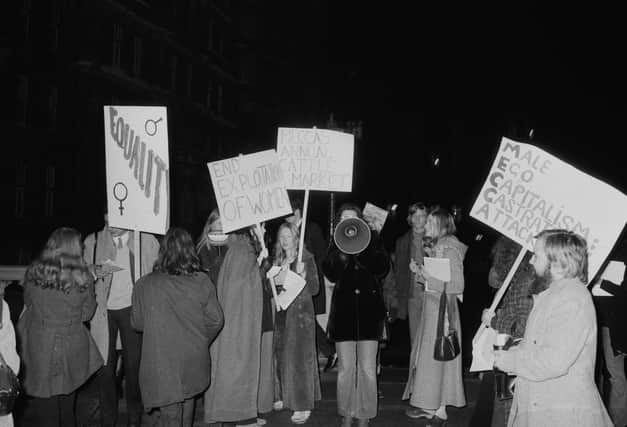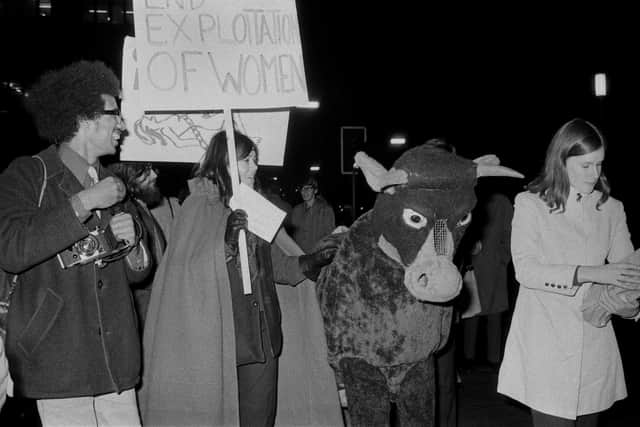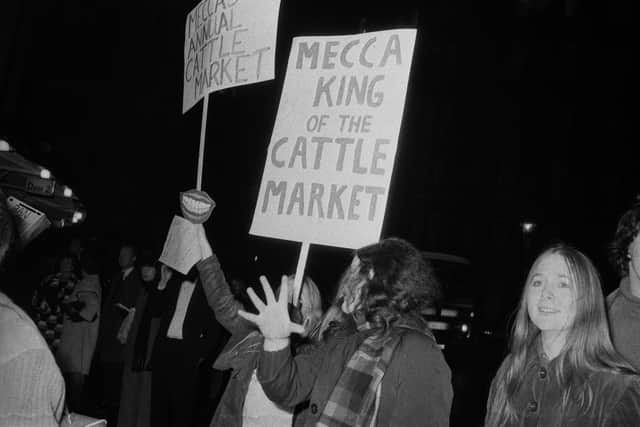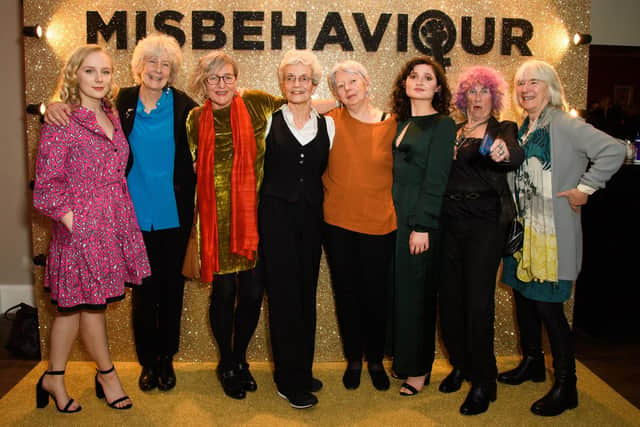How a Sheffield campaigner helped ground the 1970 Miss World contest to a halt


The women who organised the action that ground the 1970 Miss World contest to a halt on millions of TV screens are launching the book that tells the story of the event and what happened as a result.
The annual TV show drew an audience of over 100 million world-wide on live television. Women from all over the country smuggled themselves into the Albert Hall to bring to a halt what they considered to be a showcase of sexism.
Advertisement
Hide AdAdvertisement
Hide AdNow a major film has been released – Misbehaviour – which tells the stories of both the protesters and the beauty contestants. The film’s producers explain in the book why they think this is such an important story to tell.


Jenny was amongst the dozens of women who organised this protest and succeeded. They chased Bob Hope off the stage, hitting the national front pages and ending up on trial and in Holloway prison.
Jenny said: “It was glorious – we’d done it! The Albert Hall transformed into a sublime storm of flour, leaflets, hoots, whistles, football rattles and chants ‘ We’re not beautiful, we’re not ugly, we’re angry!’. The whole thing ground to a complete halt. The stage emptied, Bob Hope made a run for it, the orchestra ducked, the audience gasped.
“Suddenly I felt a heavy hand on my shoulder – who was this? ‘Come on out with you’. Two burly policemen carried me out and into a waiting police van.”
Why did they do it – and why were they so angry?


Advertisement
Hide AdAdvertisement
Hide AdJenny said: “Up until then, we had seen our mothers living through hardship and injustice - married men had a legal right to rape their wives. There were no domestic violence refuges or rape crisis centres. Many employers openly advertised job vacancies as being for men only. Sometimes, even if a job was open to women, the ad would specify that she must be ‘attractive’.
"If a woman found that she was being paid less than a man doing the same job for the same employer, she had no legal redress. Maternity leave was not a legal right. Neither was state-funded childcare. Women seeking a mortgage or other credit were often required to provide a male guarantor. Most married women were not allowed to fill in their own income tax returns: they had to give their financial information to their husbands, who would fill in the forms on the couple’s behalf.
"Husbands, by contrast, were not required to reveal their financial information to their wives. Social security benefits for couples and families were only payable to the ‘head of household’, i.e. the husband. Contraception and abortion were not available on the NHS.
“The Women’s Liberation movement succeeded by simply refusing to accept the situation anymore.


Advertisement
Hide AdAdvertisement
Hide Ad"Myriads of campaigns and hard work by Labour women MPs over following decades succeeded in changing life for women in the UK – heralding the Equal Pay Act, the Equal Rights Act, the ‘No Fault’ Divorce Law, the right to free childcare, the right to get a job equal to a man’s, have our own bank account and control over our finances, be able to have a housing tenancy in our own name, get a mortgage, the right to contraception and abortion – so many things that were not possible for women until then. Since then progress has been made in many more legal areas, such as recognition of rape within marriage, violence and abuse against women. But there is still a long way to go.”
Nearly 20 women who changed history in this way have contributed their stories to the book. The action has garnered many a TV programme, radio shows – and now the film ‘ Misbehaviour’.
The makers of these films and programmes have also contributed their stories.
The book can be bought in bookshops and ordered online from www.misbehavingthebook.com and Merlin Press.